Egypt has long been a jewel of global tourism. The allure of the Pyramids, the majesty of the Nile, and the beauty of the Red Sea make it a bucket-list destination for millions around the world.
Yet, while Egypt’s history and natural wonders are timeless, its tourism sector faces a very modern problem – TikTok. The platform, along with Reddit and other social media forums, is brimming with negative reviews from travel influencers and tourists who are increasingly viewing Egypt as a destination to avoid.
On TikTok, viral videos from travel influencers – many of them women – complain about harassment, scams, and disorganization. Influencers are increasingly answering the question, “Where would you not go back to?” with one word: Egypt.
These videos have reached hundreds of thousands of people, rapidly shaping perceptions of Egypt as a nightmare for tourists.
From the Airport to the Pyramids, Tourists Complain of Chaos
The complaints raised are significant. Women often report being harassed at historical sites like the Pyramids, intimidated by aggressive vendors and “guides” who offer unsolicited help, only to demand payment afterward. Roads leading to key sites, such as those in Giza, are poorly lit and dangerous at night, and visitors are frequently accosted by individuals outside the gates of the Pyramids and other historical sites who pressure them into accepting services they did not ask for.
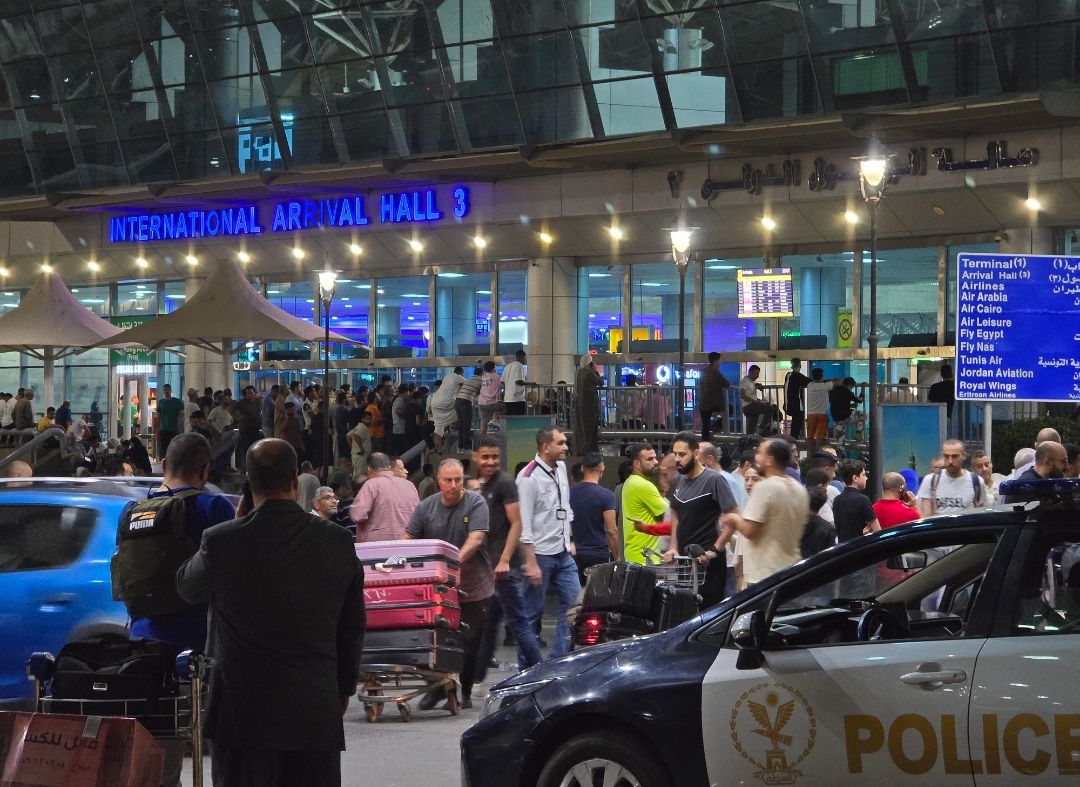
Cairo International Airport, which serves as many tourists’ first impression of Egypt, is another frequent target of criticism on social media, with some visitors expressing shock at the experience.
For example, Terminal 1, which is used by budget airlines, is outdated and chaotic – even when compared to airports in countries with similar socio-economics. There is no clear guidance on where to go, leaving tourists scrambling, confused, and wasting time. Many complain about waiting in line at passport control, only to be told they need to go back to an ill-marked bank kiosk to get a visa. The process is cumbersome and frustrating.
Moreover, some airport terminals only accept cash in USD or EUR for visa payments (sometimes with no change handed back), adding another layer of difficulty for travelers who do not have the right currency on hand. The challenges do not end there: as tourists leave the airport, they need to wait in another customs line for potential bag checks (something that is rarely experienced across other airports globally) and are then met with a swarm of taxi and private drivers demanding inflated prices. The entire system needs to be simpler, more clearly marked, and allow for modern payment methods, such as credit cards.
The departure experience is just as nightmarish: multiple cumbersome security checks (two bag checks in the span of 20 meters before even reaching the check in desk area), long chaotic and disorganized lines, and outdated procedures (such as patting down rather than using modern forms of security technology) make for a stressful and confusing process. The final impression presented to visitors is one that does not match Egypt’s rich history and beauty.
But this issue is not limited to harassment or poor infrastructure and procedures. Many visitors feel they are being scammed at every turn – whether it’s being overcharged for simple tasks, asked to pay for using bathrooms at historical sites (in cash, no less), or facing aggressive haggling in bazaars and at protected tourist sites. All of this contributes to a negative, and sometimes dangerous, perception of Egypt as a tourist destination.
Egypt’s Tourism Experience Must Be Addressed
Tourism remains a vital pillar of Egypt’s economy, contributing to around 24 percent of the country’s GDP. In 2023, a record breaking 14.9 million tourists visited Egypt.
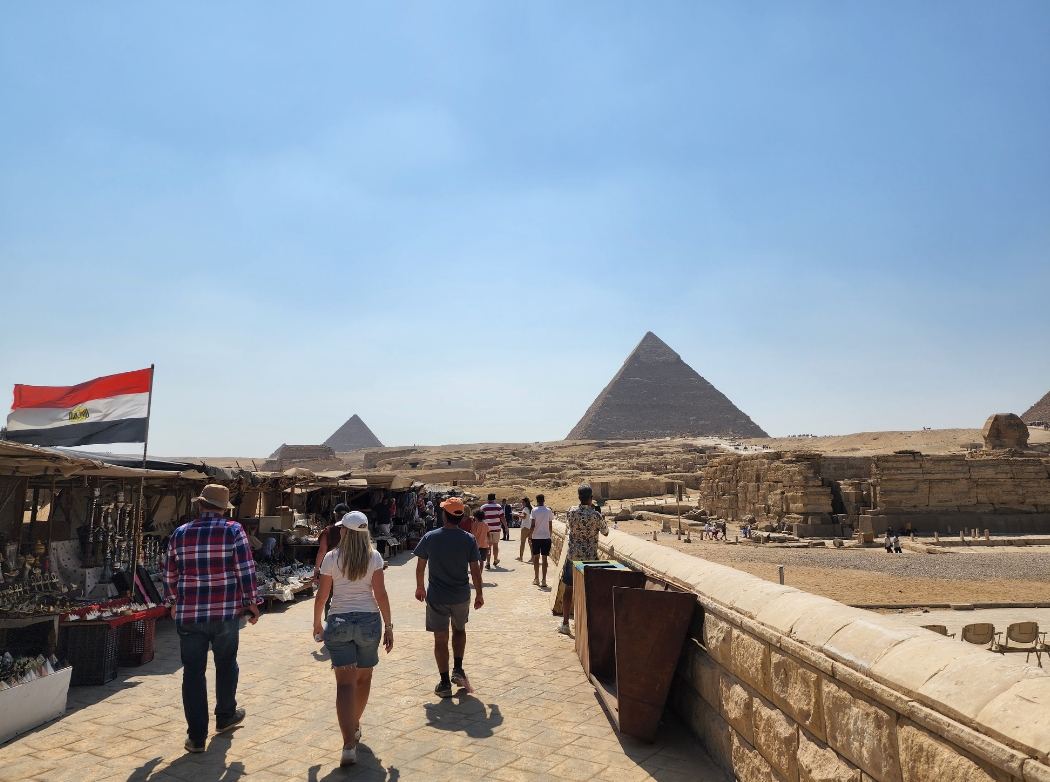
While Egypt’s tourism numbers are touted as a success, they pale in comparison to other countries in the region and globally. Greece, which similar to Egypt is one of the world’s oldest civilizations, was visited by 32 million tourists in 2023. Closer to home, Dubai alone attracted over 17 million tourists in 2023, while Turkey saw more than 49 million, and Morocco welcomed over 14.5 million tourists.
While some of these figures may appear similar, they do not reflect Egypt’s rich cultural heritage and history: Dubai’s modern Burj Khalifa attracts more visitors than the Great Pyramid of Giza, the last remaining ancient World Wonder. Egypt’s offerings are diverse and unique, but with social media now being a dominant force in shaping travel choices, these offerings are simply not enough. Egypt’s Ministry of Tourism and Antiquities and other relevant authorities must act swiftly to address this.
Fixing the problem starts with improving the experience from the moment tourists arrive. Cairo International Airport is in desperate need of modernization. Better signage, a more transparent visa process, and an organized and welcoming arrival system are essential. No visitor should feel like they’re being taken advantage of the second they step off the plane, and the current chaotic departure process must be streamlined to match global standards. Security checks should be modern, consistent and clear, without making tourists feel unsafe or confused.
Cairo is uniquely positioned in the world to serve as a major travel hub, connecting people to Europe, Asia, and Africa far more efficiently than other regional hubs such as Dubai, Abu Dhabi, Doha, and Istanbul. However, the shortcomings of Cairo International Airport have led many travelers and businesses to prefer these other hubs, even when that means additional cost and travel time. Addressing these issues would allow Cairo to realize its potential as a premier global gateway – attracting even more international travelers and foreign investment.
At historical sites, especially at the Pyramids, it is imperative that tourists feel protected and free to explore without constant harassment or fear of being scammed. Employing visible staff or monitors who can assist visitors and ensure their safety would go a long way toward creating a more positive experience. This issue is pervasive across other must-visit sites.
Khan El Khalili, for instance, is far more charming than Istanbul’s Grand Bazaar, but tourists have complained about difficulty accessing the site, harassment, scamming, and the lack of proper guidance and signage. This has made it challenging for visitors to fully enjoy the souk’s charming cafes, historic mosques, Islamic architecture, and narrow alleyways. Increasingly, tour companies do not include Khan El Khalili in their itineraries, scared of the impression it will leave visitors. With proper management, Khan El Khalili could become an even greater highlight for visitors – one that visitors look forward to visiting multiple times and which eclipses the likes of the Grand Bazaar.
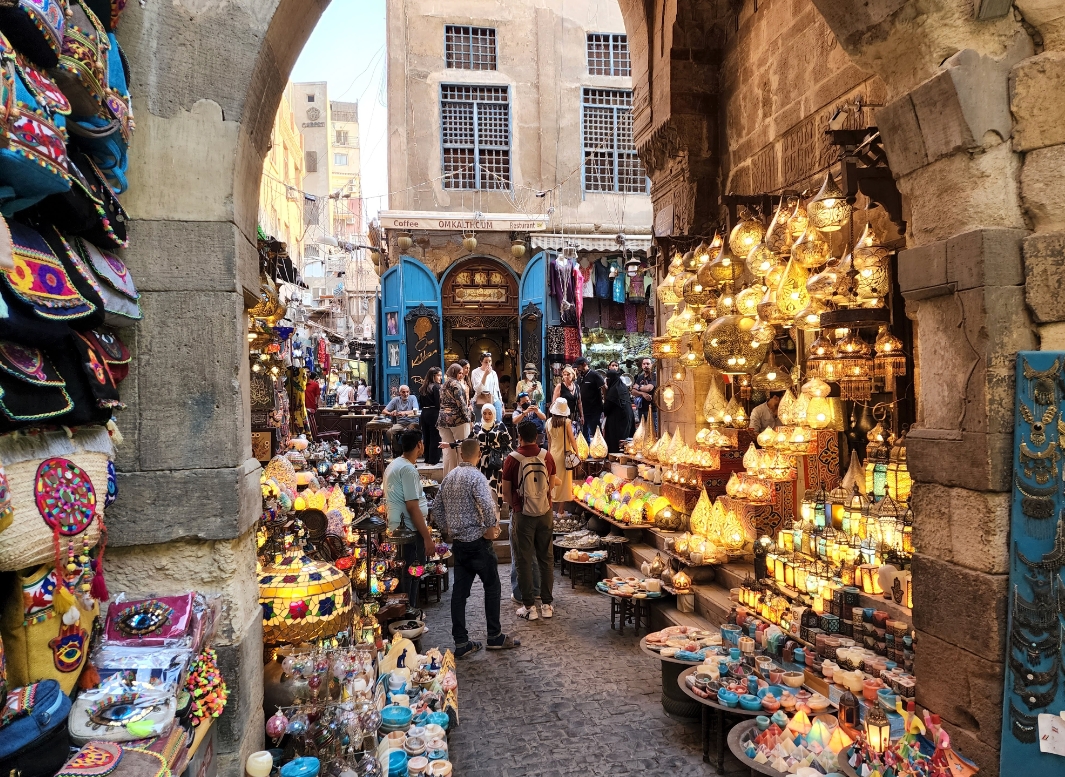
But it is not just about security; the lack of services and facilities at key sites is another critical issue. Tourists need access to clean toilets, cafes, gift shops, and visitor centers. The National Museum of Egyptian Civilization is an excellent example of a site with modern and well-maintained facilities – something that should be replicated at other key attractions across the country. Ensuring that Egypt’s cultural treasures are enjoyed in the way they deserve to be, free from the stress of unwanted solicitation, intimidation or worrying about the lack of basic facilities, should be the goal.
Transportation is another major issue. Beyond the frequent reports of harassment and scamming by public taxi drivers and drivers from rideshare services, the conditions of the cars themselves are often unsafe. Vehicles are outdated, drivers speed, seatbelts frequently do not work, and overall road safety is lacking. Enhancing the quality and safety of transportation is key to ensuring tourists can move comfortably and securely around the country.
To sustain positive change, improving the relationship between tourists and local vendors and those working in the industry is crucial as well. Investing in training for those who interact with tourists – whether they are taxi drivers, market vendors, or guides – would foster a culture of professionalism and respect. Ensuring that these interactions are positive and mutually beneficial, rather than opportunistic and confrontational, could drastically improve the overall experience of visitors. Engaging local communities to embrace tourism as a positive economic force rather than a quick source of profit is essential for long-term change.
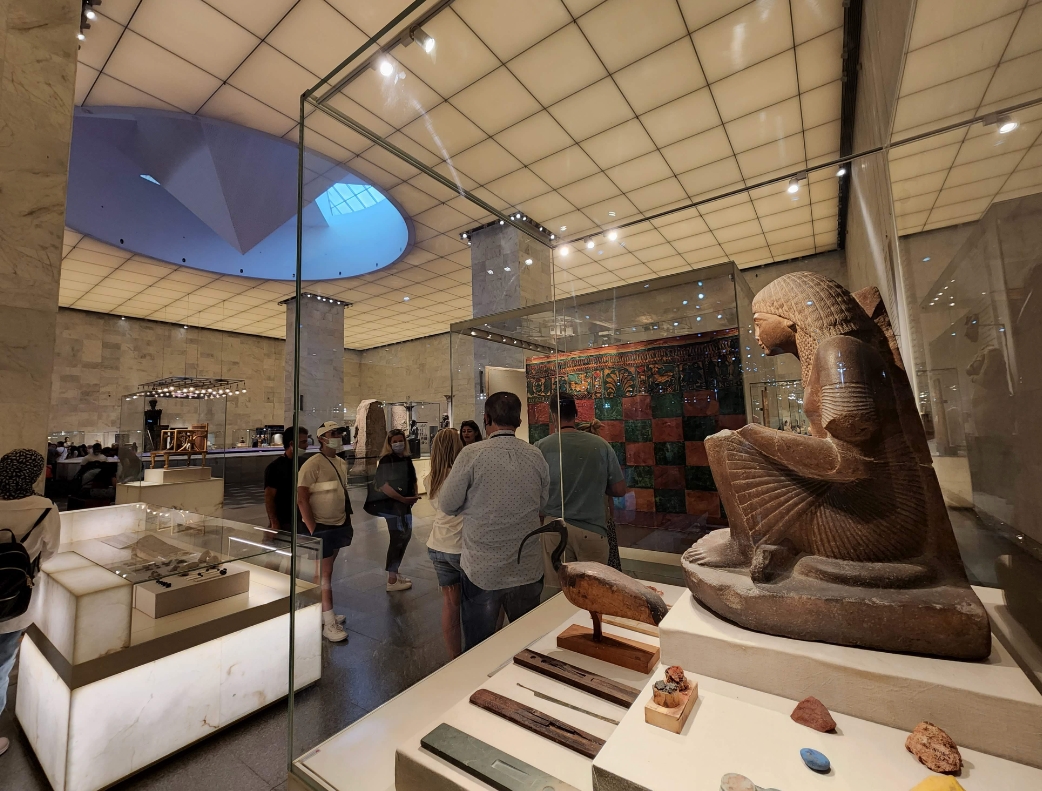
Similarly important is recognizing the power of dialogue. A feedback system that allows tourists to report issues in real time or shortly following their trip can help identify patterns and resolve problems before they snowball into bigger complaints. This approach would also show visitors that their concerns are being taken seriously, fostering a sense of trust between tourists and local authorities. Encouraging open communication is key to understanding and addressing the issues that harm Egypt’s tourism reputation.
Further, Egypt’s government officials responsible for tourism need to experience firsthand what everyday tourists go through – not in carefully orchestrated official visits, but in the same way regular visitors experience the country. They should also study best practices from other countries, particularly those that have successfully enhanced their tourism and airport offerings.
Across many destinations worldwide, travelers can arrive with nothing but a phone, wallet and passport, confident that their trip will be smooth, safe, and enjoyable. This should be Egypt’s goal, too.
Reclaiming Egypt’s Tourism Narrative
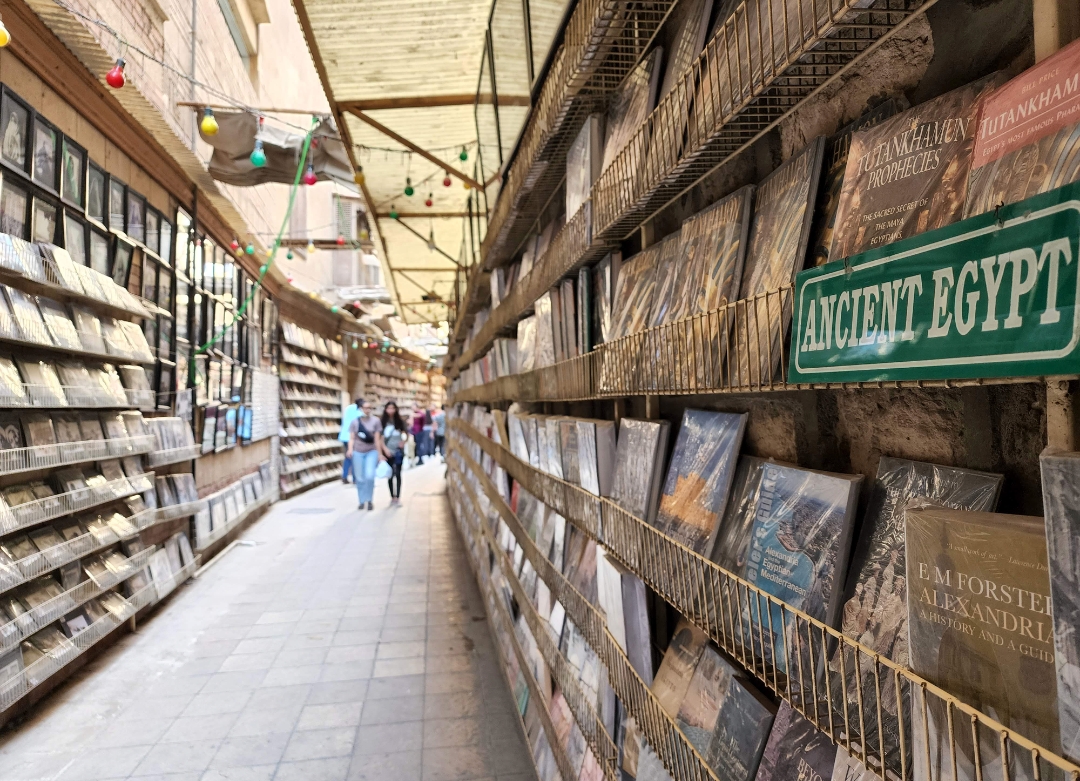
The opportunity for improvement is enormous, and it is one Egypt cannot afford to ignore. Egypt is already a bucket list destination, with unparalleled cultural heritage and appeal. However, every negative experience shared on TikTok, Reddit or other media platforms is a lost opportunity.
Beyond just attracting first-time visitors, Egypt is also losing out on the potential for repeat tourism, which remains untapped. Egypt has so much to offer, from world-class museums and pristine beaches to a rich history that spans from ancient times to the modern era. With its prime location, Egypt is ideally positioned to be a destination that travelers return to again and again.
The damage to Egypt’s reputation can be swift and long-lasting if responsible figures do not act now. The Ministry of Tourism and Antiquities has made strides in bringing more visitors to Egypt, but to sustain and grow that success, the visitor experience must become a priority.
Reclaiming Egypt’s narrative on social media will take more than just flashy marketing campaigns and major events or viral videos about a dog climbing the Pyramids. It will require systemic changes that address the real problems tourists face. If these changes are implemented, Egypt can take its place as one of the most sought-after travel destinations in the world.
If Egypt wants to become one of the world’s top tourist destinations, it must ensure that every visitor leaves with memories of wonder, not frustration. From revamping airports to tackling harassment at key sites, the solutions are within reach – and the time to act is now.
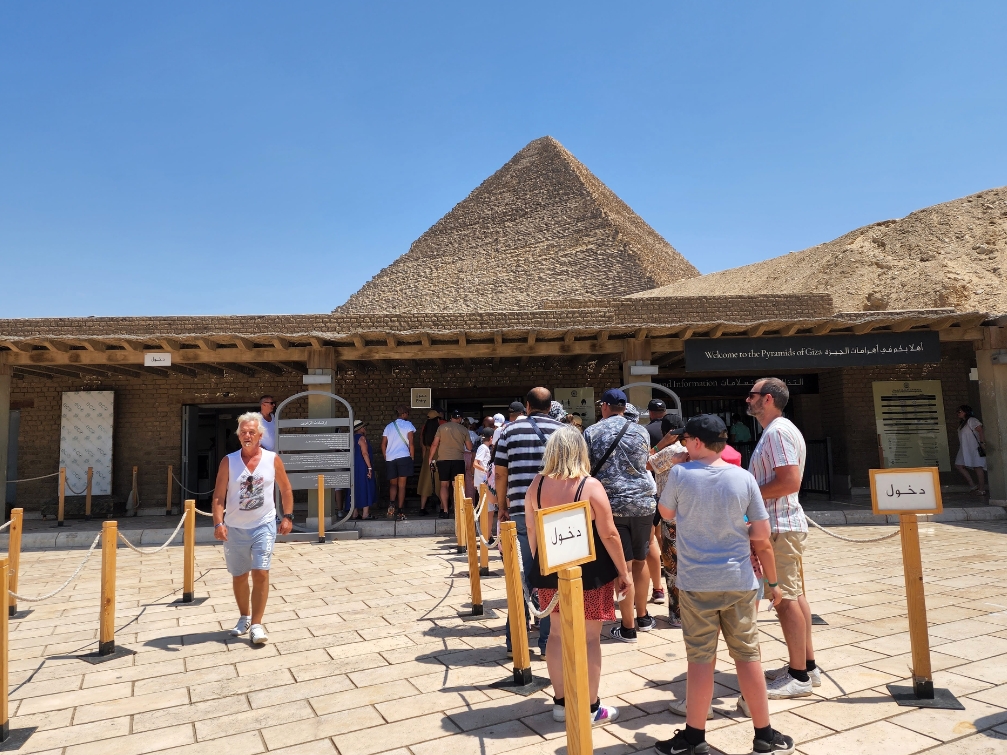



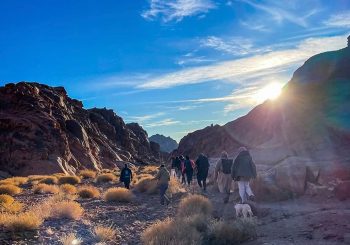

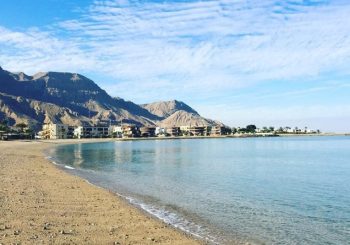
Comments (0)